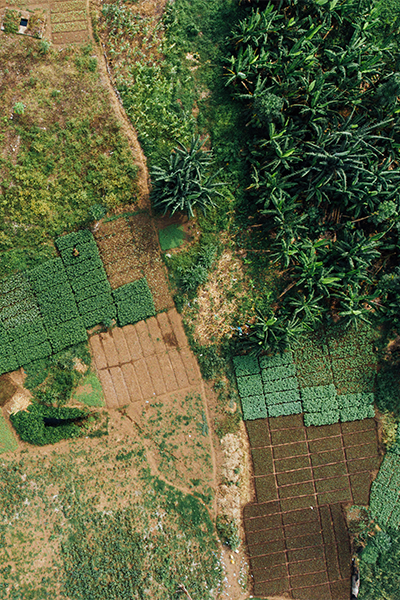Countries:
Nigeria
Status:
Completed
Sector:
Nature
Creating improved capacity and awareness among policymakers, decision-makers and smallholders of environmental benefits associated with non-irrigated indigenous tree planting.
This project aimed to help mitigate climate change and deliver livelihood and poverty reduction benefits to smallholder farming communities in dryland Northern Nigeria. How? By promoting the uptake of farmer managed natural regeneration of vegetation (FMNR) and irrigation-free indigenous tree restoration (IFITR) practices.
Through innovative training to enhance local indigenous tree restoration and planting skills, and to build capacity within smallholder farms in northern Nigeria, the project aimed to:
The project was delivered by the University of Leeds in collaboration with the University of York and Bayero University Kano.
“We have a lack of professional staff and nurseries lack water. This project has changed what we do, from nursery-based seedling production to farmers managed natural restoration.”
Head of Department of Forestry for the State Ministry of Environment
“The training has enlightened us about the role of female farmers in indigenous tree restoration and drew our attention to the women’s empowerment potential and food security benefits.”
Female extension worker, Kano

on climate change mitigation through the introduction and upscaling of IFITR
for 200 smallholder farmers and extension workers to enhance their silvicultural and technical skills
2,200 participants attended an art exhibition in Kano focused on indigenous tree species in agroforestry and its potential benefits to raise awareness
attended by NGOs and policymakers to better understand the economic importance of driving efforts to include IFITR into their organisations and policies
To achieve its multiple objectives of enhanced emissions reductions, livelihood diversification, gender equality and a green recovery, the project engaged with stakeholders and built capacity through:
women (50% of participants) took part in the field training for farmers and extension workers
women (27% of participants) attended the workshops for policymakers, highlighting the need for improved diversity within these groups
women (54% of participants) attended an art exhibition displaying artwork by local female artists
short films produced, portraying women as key players in raising awareness on the importance of indigenous tree restoration within their households and communities
This project integrated GESI perspectives and benefits throughout all the activities delivered. Tangible impact was generated by including women and smallholder farmers in field-based trainings, workshops, media outputs and wider capacity building activities.
Training has mapped strategies and priorities for women to be major counterparts of future livelihood diversification, and created new capabilities and opportunities for women and smallholder farmers. For example, the fact that innovative tree restoration practices engender increased availability of value products creates opportunities for furthering female empowerment in the sector as well as food security benefits.
During the implementation of multiple project activities, efforts were made to better understand how differences within groups might pose different barriers that need to be overcome to adequately represent and maximise empowerment opportunities. Additionally, actions were taken to ensure that women's voices were heard in the workshops. Priority has been given to women's perspectives in project outputs, including in the literature review and production of manuals, where their perspectives are prominently presented.
Finally, recommendations were produced to advocate for increased commitments among the political stakeholders in Nigeria to address GESI dimensions in their approaches. In-depth focus, analysis and discussion on a range of GESI-focused issues have driven the attention of the policymakers towards the opportunities for indigenous tree restoration to foster gender empowerment.

By underpinning the creation of new and diversified livelihoods for those living in dryland northern Nigeria, this project has paved the way for sustainable economic growth that is inclusive of women and marginalised groups. Project impacts will continue beyond the project duration, as tree establishment, growth and associated improvements to soil health and product availability is a long-term process.
The impact could be scaled up and sustained by:
UK PACT (Partnering for Accelerated Climate Transitions) is a unique capacity-building programme. Jointly governed and funded by the UK Government’s Foreign, Commonwealth and Development Office (FCDO) and the Department for Energy Security and Net Zero (DESNZ) through the UK's International Climate Finance, it works in partnership with countries with high emissions reduction potential to support them to implement and increase their ambitions for tackling climate change.
© Copyright 2025 UK PACT Privacy Notice Cookie Policy